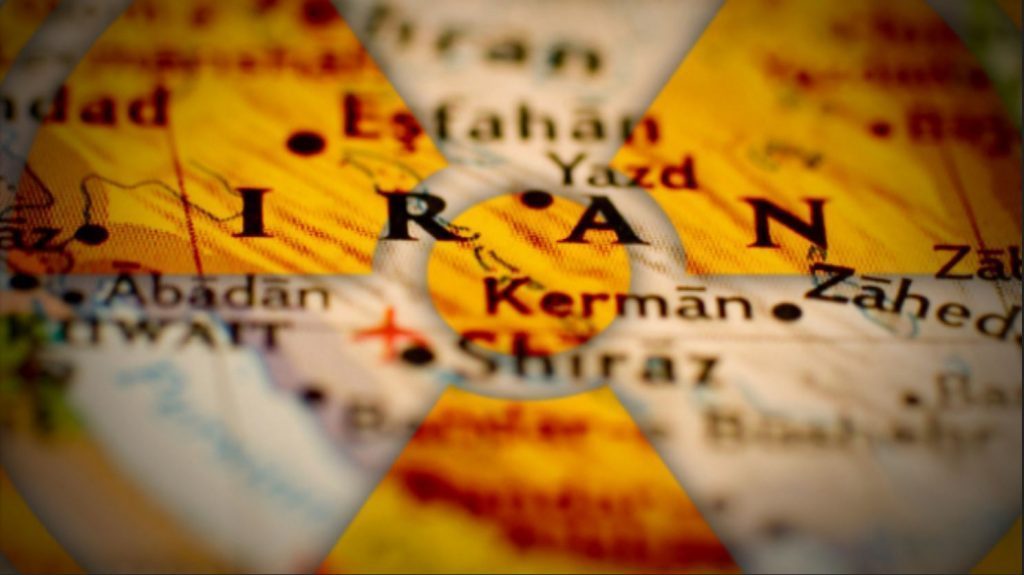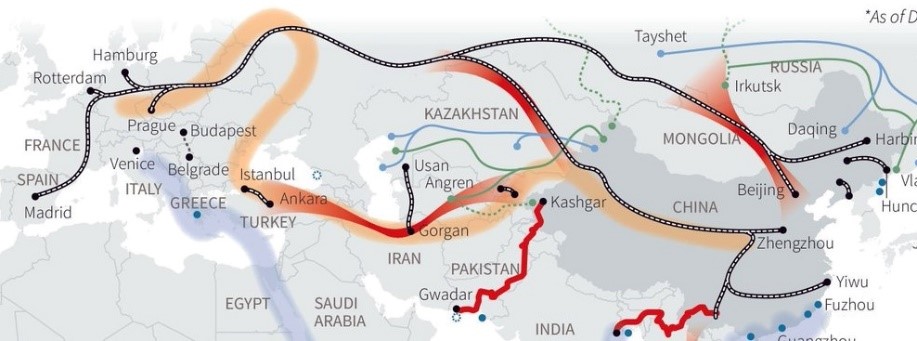Why Globalists Want to Contain Iran
From: Robert L Anderson
https://www.activistpost.com/2018/06/why-globalists-want-to-contain-iran.htmlHOME POLITICSWhy Globalists Want to Contain Iran
Forget the hullabaloo about Iran’s nuclear program—Netanyahu and the Neocons have been screaming about the imminent demise of the globe by Iran’s non-existent nukes for more than twenty years. The truth is that Iran is in the crosshairs of globalists for four main geopolitical reasons:Oil competitionIn terms of world’s proven reserves, Iran is #4 in oil and #2 in natural gas. Thus, a free Iran will endanger Saudi Arabia’s role as the leading oil producer.To give some historical context, the only reason that Saudis are so rich now is that Iran has been virtually isolated by crippling US sanctions since 1979. For decades before that, Iran was #1 in oil production and refining, but everything changed when Saudis colluded with international financiers to create the oil-for-dollar (“petrodollar”) scheme in the 1970s during the dollar crisis. In return, globalists turned Iran into a global pariah. Thus, in 1970, Iran was producing more oil than Saudi Arabia; however, by 1980, the Saudis were producing six times more oil than the Iranians!A resurgent Iran will also mean competition to US oil and shale companies which have been ramping up production since 2011 (when Libya was destroyed!).Israel wants weak Arab neighbors that it can kick around and grab oil/land from – a prime example being Golan Heights, that has huge oil reserves. There are Israelis who dream of a Greater Israel, which encompasses land from many neighboring countries. Iran is strong and independent; it helped defeat Al Qaeda and ISIS jihadists in Syria; it’s very likely helping anti-Saudi rebels in Yemen; and it arms Hezbollah who can punch Israel in the nose if the latter meddles in Lebanon.Divide and Rule; Weapons SalesIf everyone in the Middle East got along with one another, there will be no need for US military bases, and Saudi Arabia won’t be binge-buying US/UK weapons. That would be terrible! For the military-industrial complex, the Middle East has been a cash cow for the last two decades. Perpetual wars mean enormous war-profiteering for private contractors and defense corporations.Then there are geopolitical elites, for whom controlling nations and regions is imperative. For them, divide and rule is an essential strategy. Hence they fuel the Sunni-Shiite, Saudi-Iran, Arab-Persian conflict and keep it just short of a full-fledged war — after all, corporations don’t want their pipelines and refineries to get destroyed. In geopolitics, this playbook is called “controlled chaos.”Eurasian Alliance of Iran-China-RussiaThere’s a huge struggle for the control of Eurasia, and Iran is a key piece in that geopolitical chessboard. As long as Iran was isolated and weak, it didn’t matter. But now Iran is getting into all kinds of military and economic alliances with Russia & China — the two countries that have been labeled by the Trump administration as “rival powers” and “revisionist powers” that have heralded an era of “great power competition.”Iran is also key component of China’s Silk Road (also called Belt and Road Initiative or One Belt, One Road) — freight trains from China have to go through Iran on their way to Africa and the Middle East. Destabilizing Iran means sabotaging China’s Silk Road, and that would be very desirable for globalists.
** Unable to conquer Syria & Lebanon.** Possible loss of Iraq, since there’s a huge Shiite majority. This, in turn, will lead to the formidable Shiite Crescent — four contiguous nations of Lebanon-Syria-Iraq-Iran. (*Lebanon = Hezbollah, in the minds of Israel/USA)** Partial loss of Turkey, a pivotal NATO member. Erdogan-US relations are already on the rocks and Turkey is steadily moving into Russia’s orbit. Turkey is buying anti-missile systems (S-400) from Russia, partnering with Putin to build TurkStream pipelines that will bring Russian oil/gas to Europe, getting close to Iran, and planning on joining China’s One Belt, One Road.
** Partial Loss of Qatar as a vassal state. Qatar works hard to please the US/EU establishment and hosts a huge US military base. However, Qatar also shares the world’s largest natural gas field with Iran, which has become even more of a strategic and indispensable ally after the Saudi blockade last year.
** Possible eviction of US military bases from Afghanistan, a country that borders Iran and now wants to join CPEC — China-Pakistan Economic Corridor — that’s so promising that Pakistan is giving the diplomatic middle finger to Washington, DC.Basically, the US is on the verge of losing its hegemony in a contiguous string of countries from the Middle East to China. The four leaders who’re actively working on this are the powerbrokers in Russia, Iran, Syria and Lebanon. China is quietly helping in the economic front, while being careful not to militarily challenge the US.
These are the reasons why globalists are fervently trying to topple the current Iranian regime. Neocons such as Bolton are partnering with MEK, a cult-terrorist group that was conveniently deemed innocuous by the US government in 2012, the same year when the US illegally seized $100 billion of Iranian assets and imposed devastating sanctions. Trump pulling out of the Iran nuclear deal (JCPOA) gives the hawks one more chance to crush the Iranian economy through sanctions, which will also force EU companies to pull out of Iran.
Warmongers don’t care much about what happens after a regime change. If Iran is embroiled in a bitter civil war between Islamists & secularists for the next decade, it will just be splendid. The chaos can actually be used to chop up Iran into pieces — Baluchistan on the east, Khuzestan on the south and Kurdistan on the northwest. This will ensure that Iran will never be an influential regional power again. Of course, all this would also mean millions of refugees rushing into Europe and America, but geopolitical machinations are ruthless.Chris Kanthan is the author of a new book, Deconstructing the Syrian War. Chris lives in the San Francisco Bay Area, has traveled to 35 countries, and writes about world affairs, politics, economy and health. His other book is Deconstructing Monsanto. Follow him on Twitter: @GMOChannel



